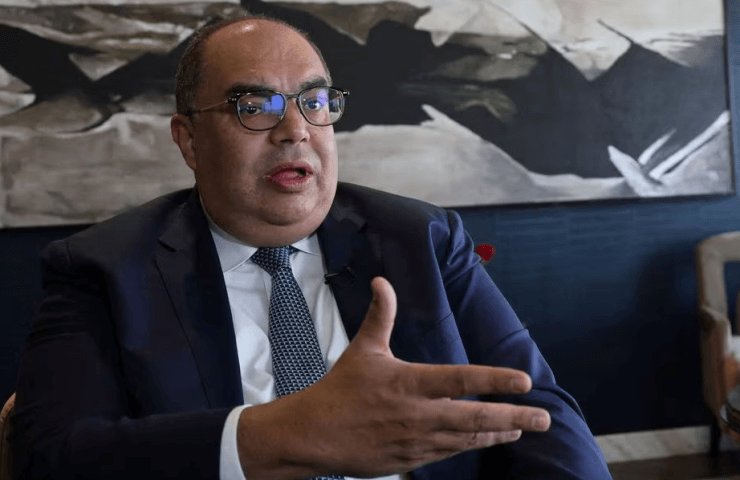Egypt calls on Western countries to help developing economies decarbonize their steel industry
Africa
Steel exporters from developing countries face EU Carbon Border Mechanism (CBAM) tariffs that would have “serious consequences.”
The financing scheme, which relies on money from Western donors to help developing countries move to cleaner energy production, could be used in heavy industry and other hard-to-cut sectors, UN high-level climate change spokesman Mahmoud Mohieldin said.
Extending the Just Energy Transition Partnership (JETP) framework to industries such as steel, aluminum, cement and fertilizers made sense due to new European Union rules that would otherwise penalize exporters from developing countries , noted an Egyptian climate scientist.
The rules under the Carbon Border Management Mechanism (CBAM) will have “serious consequences” for countries exporting to Europe, Mohieldin said.
CBAM is a world-first CO2 tariff system that will be introduced from 2026 on imports of iron and steel, aluminium, cement, electricity, fertilizers and hydrogen to encourage greener production worldwide.
JETP deals support the energy transition in countries including South Africa and Indonesia with financing consisting of equity investments, grants and concessional loans from wealthy Western Group of Seven (G7) multilateral banks and private lenders.
Progress of JETP programs and ways to mobilize more climate finance will be the focus of the UN COP28 climate change summit in Dubai, which begins on November 30.
Germany and Chile plan create a club at COP28 to help developing countries invest in decarbonizing steel, cement and other industries.
Mohieldin said exporters to the EU in sectors where emissions reductions are difficult to combat could try to combat CBAM through the World Trade Organization, use carbon markets or negotiate exemptions, but at the same time there is a chance to use investment and technology for decarbonization.
“It's encouraging that these industries are resourceful, they can actually work with JETP , so they already have their funds,” he said, citing Egypt’s cement industry as an example where “catalytic financing” could accelerate decarbonization.
“I know Egypt is looking at this. I know a lot of African countries are looking at this,” said Mohieldin, who was appointed after Egypt was nominated to host the 2022 UN climate change summit in Sharm el-Sheikh.
Breakthrough Last year's summit resulted in an agreement to create a fund to help poor countries hit by climate disasters, after years of resistance from rich countries. Recommendations for the creation of a "loss and damage" fund, including placing it at the World Bank, will be presented to governments at COP28.
Despite ongoing tensions between the fund's likely contributors and beneficiaries, Mohieldin said he expects it to could begin work "within months, if not weeks" of the summit, with a pledge of $500 million in start-up capital.
"It's not an ambitious goal, but it's a realistic goal," Mohieldin said, citing estimates that the cost of loss and damage already exceeds $150 billion a year.
Developing countries have proposed that the fund provide at least $100 billion by 2030. Officials in Europe and the United States have declined to say how much they will contribute to the fund, with some developed countries pushing for funding from a variety of sources, including potential taxes on sectors such as shipping. or aviation.
Focusing on the cost of such extreme funding for loss and damage could push people "up the chain" to address past failures in adapting to climate change and mitigating greenhouse gas emissions, Mohieldin said.




